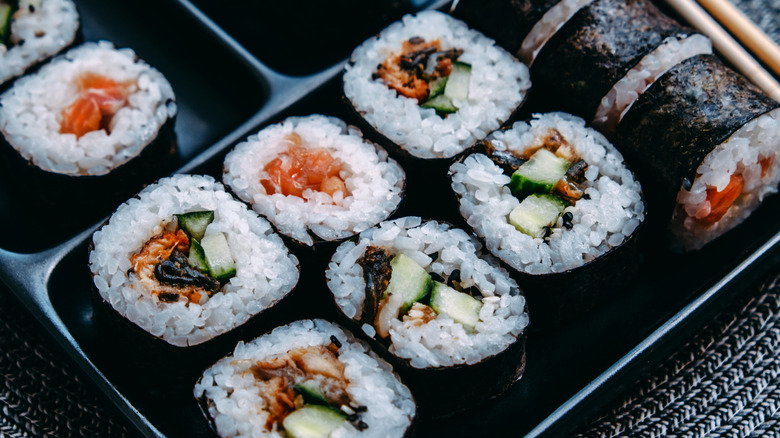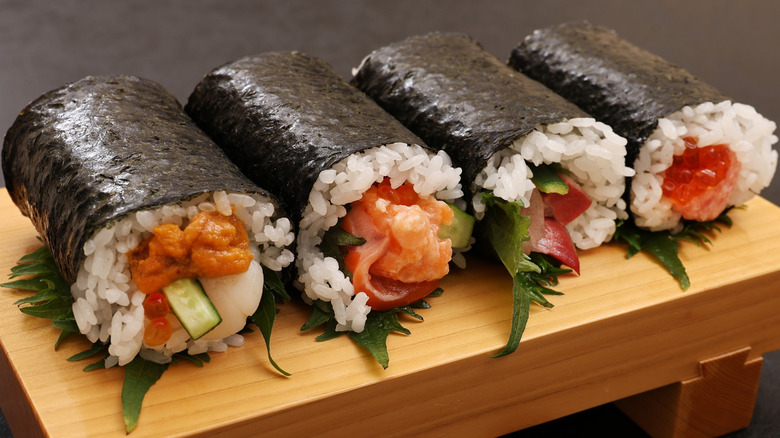Japan Has Too Much Sushi (We Didn't Know There Was Such A Thing)
If you've spent any time in Japan, you've probably experienced the wonders of the Japanese convenience store. You can find one on nearly every street corner, with many keeping their doors open twenty-four hours a day, 365 days a year. The endless sea of snacks, from sushi to fluffy egg salad sandwiches, paint an alluring picture. And that's not even touching on the fact that most convenience stores also have toiletries, magazines, electronics, clothing, medicine, and even ATMs to do your banking. But the phrase "all that glitters isn't gold" rings all too true for these glimmering urban oases.
You see, Japan has a major food waste problem, and convenience stores lie at the heart of it. The cogs of Japan's consumerism machine are well-greased, with companies bending over backwards to satisfy the customer at every turn. Some argue that this has created a culture in which produce with the slightest blemish is doomed for disposal, all because customers expect the very best to a detrimental and unrealistic degree. The three major convenience store chains (Lawson, 7-Eleven, and FamilyMart, for the uninitiated) contribute to this issue in a way that can be boiled down to one single sushi roll.
Ehōmaki as a symbol of modern day waste
Setsubun's trendy sushi roll, ehōmaki, has taken on new life as the emblem of Japan's food waste problem. Setsubun is a holiday celebrating the end of winter, and it's considered good luck to eat this thick sushi roll uncut, treating it like a wishbone that you can make a silent wish upon while scarfing it down (as long as you're facing an auspicious direction, that is). In the same way that Coca-Cola eventually usurped Dr Pepper as the holiday soda of choice thanks to clever marketing, it's believed that 7-Eleven started the Setsubun ehōmaki tradition as a way to boost sushi sales.
But in 2022 alone, it's estimated that ¥1.2 billion was thrown into the garbage in the form of uneaten ehōmaki rolls. This is due in part to corporate's push for franchisees to over-order and partially because of the culture of consumerism unique to Japan thanks to its convenience stores. The unsustainable image of stores hosting full-to-bursting shelves at all hours costs taxpayers billions of yen in wasted food every year, while some citizens scrape by with barely enough to eat. It's a grim dichotomy that food waste activists are currently trying to change by bringing attention to the problem and taking convenience stores to task about their damaging corporate practices. With the combined efforts of the public and franchisees, we'll hopefully see a future with garbage cans free of perfectly good sushi.

